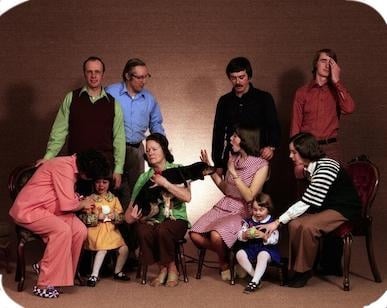Surviving Children’s Rights After a Parent’s Death – With or Without a Will

Surviving children’s rights after a parent’s death are many and diverse. If the parent left a will, then the rights will be determined in accordance with the will. If the will excludes one of the children, they have the right to try to contest the will. If there is no will, then the estate gets distributed in accordance with intestacy laws.
If your parent did not leave a will
How much does each of the children receive? New York’s default intestacy rules, New York’s Estates, Powers and Trusts Law § 4-1.1 lists the order of hierarchy of the preferred distributees:
- If your parent had a spouse, the surviving spouse gets the first $50,000 of the estate, half of the remaining estate will go to the spouse too, and the rest will be divided between the surviving children.
- If one or more children died before the parent, their share goes to their children (the grandchildren, not to the other surviving children of the parent).
“Issue” means linear descendants – surviving children, grandchildren, and great-grandchildren.
A distributee is a legal term for a person who is entitled to inherit property from their relative who died without a will. New York Estates, Powers and Trust Law Section puts it this way: “A distributee is a person entitled to take or share in the property of a decedent under the statutes governing descent and distribution.” Quite intuitively, the noun “distributee” comes from the verb “distribute.” It connotes relatives to whom the estate is distributed unless overridden by a Will.
Who’s in charge of the estate? If the parent had a will, then only the children named as the executors or personal representatives have the right to be in charge of the estate. If the parent had a spouse, then the spouse has the priority to become the administrator of their estate. This is not something that every distributee appreciates. For example, sometimes a child from the first marriage does not want the wife of the decedent to become their administrator. If the parent did not leave a will and was not married when they died, then any one of the surviving children can petition for the administration of an estate.
If your parent left a will
If the parent left a will, then surviving children’s rights after parents death are determined by the will. The will determines which of the children is in charge of the estate and what each of the children gets or does not get. In order for the will to take effect, it has to be ratified by the probate court in a process that is called estate probate. The will has to be examined by the judge and determined to be valid, and everyone who wishes to object the will has to have their change to object. After that, creditors have the right to have their claims paid and the executor of the will can, as part of the probate process, eventually distribute the estate to the beneficiaries of the will.
If surviving children are left out of the will
A Will Controls What the Surviving Children Get from an Estate. Can you be one of the children and still get nothing from the estate? Absolutely. If your parent left a will, the will controls what happens to the inheritance after the parent’s death. A will can omit one of the children, expressly mention that one of the children does not get anything, or give one of the children a lesser share than other people in the will. The will overrides distributee distribution. In New York, a parent can disadvantage one or more of the surviving children in any way they like.
Surviving Children Have the Right to Contest their Parent’s Will. If they feel that the will was not made correctly or under the right circumstances. Surviving children have the right to bring a will contest in the Surrogate’s Court. It would be up to them to prove one of the will contest grounds below:
- The parent who died did not have the mental capacity to make a will
- Beneficiaries manipulated the parent into favoring them in the will
- The will is a forgery
- The beneficiaries obtained the will by lying
- The will was not made correctly
- The parent revoked the will
If you need to prove you are one of the surviving children
For a child, it is usually easy to prove that they are a distributee. All they need to do is provide a Birth Certificate if a child. If there is no Birth Certificate, than a DNA test may be required. It would be easier if the child in question can prove that the parent had an open and notorious relationship with them. If there is a disagreement over who the surviving children are, or if the distribution is unclear, then a proving paternity in a New York estate would ensue, whereby the court determines the relationship of each person who claims to be one of the surviving children.
My name is Albert Goodwin, I am a New York estate lawyer with experience in surviving children’s rights after parents death. If you need legal representation, you can give me a call at (212) 233-1233.













